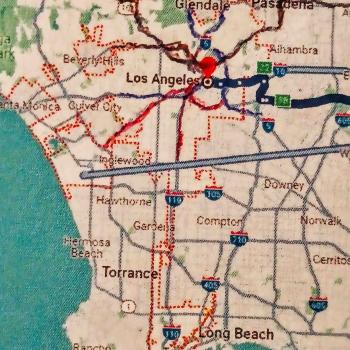 Medjugorje prophecy from the Queen of Peace …
Medjugorje prophecy from the Queen of Peace …
Poland:
Current news from Poland suggests predictions about that country’s future have suddenly been fulfilled. (see Catholic Herald article below)
In response to a question posed by the visionaries in October of 1981: What will become of Poland? … Our Lady answered: “There will be great conflicts but in the end, the just will take over. October 1981 Source Medjugorje.org
Fast forward to 2018, we see Poland passed a new law that essentially makes Sunday a legal day of rest. This new law went into effect this past weekend. One could certainly argue that in Poland believers in God – the “Just” have indeed taken over. What makes this prophecy so astonishing is that Poland was singled out as a country that would turn back to God’s laws while nearly the entire world has moved in a different direction.
Russia:
In October of 1981 Our Lady also made a prophecy about the future of Russia.
In Medjugorje, The Blessed Mother told the visionaries that “Russia will come to Glorify God the most; the West has made civilization progress but without God and will act like they are their own creators.”
These words are very precise and clear and now with all the news pouring forth like a great river about the emerging tensions between the West and Russia only a person lacking logic would ignore the possibility that we may be knocking on the door of a grand moment in history.
Prophecy about Russia unfolding? Well of course it would not be the first time Marian prophecy about Russia has come true. Many Catholics are keenly aware that Russia was the central theme of Fatima in 1917 and that all Our Lady’s predictions about that country came true.
Mystic Post encourages our readers to look at today’s headlines through the eyes of Marian prophecy. Many things may open up to the eyes that are behind a wall, but now, with Our Lady showing us a certain way that is not so always easy to see, we can begin to look above and beyond that wall and maybe see the truth.
Article from the Catholic Herald:
Large Polish shops shut as Sunday trading ban takes effect
The ban, supported by trade unions and conservatives, gives many workers more time to spend with their families
A new Polish law banning almost all trade on Sundays has taken effect, with large supermarkets and most other retailers closed for the first time since liberal shopping laws were introduced in the 1990s after communism’s collapse.
 The change is stirring up a range of emotions in a country where many feel workers are exploited under the liberal regulations of the past years and want them to have a day of rest. But many Poles also experience consumer freedom as one of the most tangible benefits of the free market era and resent the new limit.
The change is stirring up a range of emotions in a country where many feel workers are exploited under the liberal regulations of the past years and want them to have a day of rest. But many Poles also experience consumer freedom as one of the most tangible benefits of the free market era and resent the new limit.
In Hungary, another ex-communist country, a ban on Sunday trade imposed in 2015 was so unpopular that authorities repealed it the next year. Elsewhere in Europe, however, including Germany and Austria, people have long been accustomed to the day of commercial rest and appreciate the push it gives them to escape the compulsion to shop for quality time with family and friends instead.
The law was proposed by a leading trade union, Solidarity, which says employees deserve Sundays off. It found the support of the conservative and pro-Catholic ruling party, Law and Justice, whose lawmakers passed the legislation. The influential Catholic church, to which more than 90 per cent of Poles belong, has welcomed the change.
Among the Poles who see it as a good step toward returning a frazzled and overworked society to a more a more traditional lifestyle is 76-year-old Barbara Olszewska, who did some last-minute shopping Saturday evening in Warsaw.
She recalled growing up in the Polish countryside with a mother who was a full-time homemaker and a father who never worked on Sundays.
“A family should be together on Sundays,” Olszewska said after buying some food at a local Biedronka, a large discount supermarket chain.
Olszewska said that before she retired she served cold cuts in a grocery store, and was grateful she never had to work Sundays.
The new law at first bans trade two Sundays per month, but steps it up to three Sundays in 2019 and finally all Sundays in 2020, except for seven exceptions before the Easter and Christmas holidays.
Pro-business opposition parties view the change as an attack on commercial freedom and warn that it will lead to a loss of jobs, and in particular hurt students who only have time to work on the weekends. Even the All-Poland Alliance of Trade Unions opposes it, arguing that it will just push employees to work longer hours Fridays and Saturdays and that the work will be harder because there will be more customers.
Poles are among the hardest-working citizens in the European Union and some complain that Sundays are sometimes the only days they have free time to shop. According to the Organization for Economic Co-operation and Development, only the Greeks put in longer working hours than Poles in the 28-member European Union. The average Polish employee worked 1,928 hours in 2016, according to OECD statistics.
Another last-minute shopper on Saturday evening, Daniel Wycech, 26, saw more drawbacks than benefits.
Read More
















